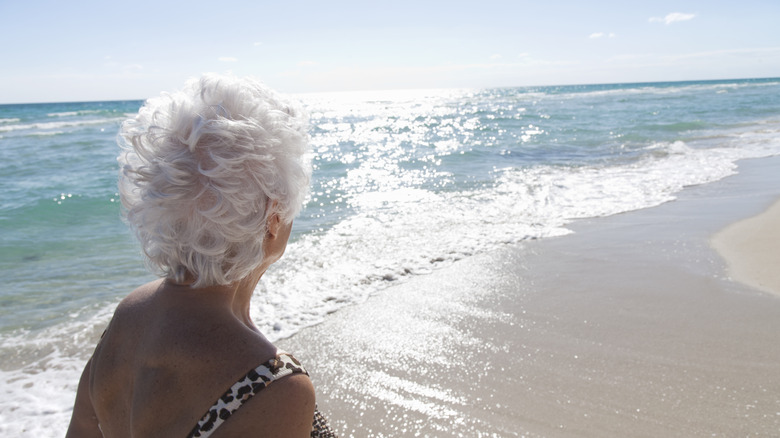The Hidden Florida Beach Perfect For Treasure Hunting That Locals Want To Keep A Secret
Correction 1/18/24: A previous version of this article was unclear about the state laws regarding treasure hunting in Florida. It is a violation of Florida Statutes to metal detect on wet areas of the beach.
Many travelers head to Florida in pursuit of sunshine, magical theme parks, and picture-perfect shorelines. However, if you make your way to Seagrape Trail Beach during your next vacation, you might just find you can add treasure collecting to that list as well. History buffs, treasure hunters, and beach lovers alike will find reasons to enjoy this charming stretch of shoreline that locals would love to keep secret, with good reason.
Located along Highway A1A in Vero Beach, Florida, Seagrape Trail Beach sits just about 30 miles from Melbourne. It's a relatively off-the-beaten-path stop that appeals to those looking for a quiet place to settle in on the sand and soak up the sun at their own pace. Seagrape Trail Beach hosts no more than 20 parking spots, so when you make time to drop by, you can rest easy knowing you'll be undisturbed by crowds. While it's a tranquil place to land in Florida, it's also a destination that has a history of maritime disasters linked to its name. Today, the legacy continues to make Seagrape Trail Beach a place where treasure hunters are drawn to dig for the possibility of riches that could sit just below their feet.
Be a part of history at Seagrape Trail Beach
Florida has a rich history when it comes to sunken treasures. The Spanish began arriving in the 1500s, with Juan Ponce de Leon discovering and naming the region in 1513. Where Spanish ships filled with coins, gold, and valuable goods traveled, pirates soon followed. Ultimately, many ships sunk along the Florida coast as sailors lost battles with hurricanes, shallow shores, and coastal reefs. These maritime disasters became an irresistible focal point for treasure hunters.
The appeal of digging up something valuable still calls visitors to Seagrape Trail Beach today. The many silver coins found in the sand and surf have been linked to the 1715 sinking of Spanish treasure fleets. The beach is open to visitors daily between sunrise and sunset, giving treasure hunters plenty of time to arrive with a metal detector in hand and see what might lie just below the surface.
While many Seagrape Trail Beach visitors come with their own treasure-hunting gear, there are options to rent what you need locally. At Sunbelt Rentals, a four-hour metal detector rental costs just $17. Treasure hunters can also rent a metal detector for the entire day or week. Once you're geared up, low tide is typically ideal for treasure hunting at Seagrape Trail Beach. Plus, if there's recently been a storm, you're more likely to find coins that have been churned up by the waves.
Prioritize treasure hunting regulations and sea turtles
The idea of potentially finding something historic and valuable in the sand at Seagrape Trail Beach is thrilling. That said, it's important to understand treasure-hunting regulations in the state before you head out to explore. According to the Florida Department of State, treasure hunting with a metal detector is a misdemeanor and should be avoided. While beachcombing is certainly allowed, you'll need to stay out of the water and away from sand dunes too. Be sure you're aware of private property lines before you start to avoid any potential problems with searching or digging.
If you're planning to treasure hunt on the beach between March 1 and October 31, it's good to be aware that this area is a haven for sea turtle nests. Sea turtles are protected by both Florida state laws and federal laws, so you'll want to be extra aware of where and how you're searching. Of course, coming across a sea turtle nest or even a hatching moment could be just as exciting as the possibility of stumbling upon silver coins. It's just another reason to be sure to add Seagrape Trail Beach to your itinerary the next time you're planning a trip to Florida.


